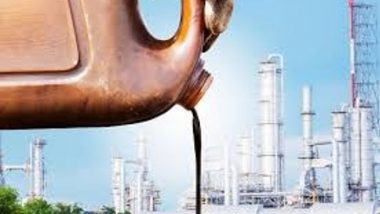Oil and natural gas storage serve to level out supply and demand imbalances. When prices are lower than desired, companies stockpile more, and when prices are high, they withdraw. Underground areas, such as drained reservoirs, are the most cost-effective storage option. This approach is mainly utilized for natural gas; rules prohibit the storage of completed oil products in subterranean natural spaces.
Crude and refined oil, completed oil products, and natural gas are stored in above-ground tanks. For safety reasons, tanks are housed underground at retail sites such as gas stations. When land storage is full, tanker ships are utilized for temporary storage, making them the most expensive alternative. There is a minimum operational level of crude oil that cannot be withdrawn without difficulty from pipelines, refinery tanks, and the entire system.
The Oil Crisis: Impact Of The Coronavirus (COVID-19)
The coronavirus pandemic in 2020 significantly lowered oil consumption, which was compounded by an oversupply caused by Saudi Arabia's increased oil production and the failure of OPEC and non-OPEC nations to reach an agreement on decreasing oil output. This signified that the storage tanks were nearly full. Oil storage firms boosted their storage rates dramatically in response. In February 2020, tankers were charging approximately $25,000 per day, but costs had increased to $300,000 per day by April.
As sanctioned Iranian oil begins to pile up, the volume of crude oil and condensate in ships globally is beginning to return, while oil offshore China is also on the increase as its crude consumption begins to decrease. Despite the Brent oil market's heavily backward-dated structure, which discourages storage, quantities increase as global demand recovery remains uneven. Uncertainty about US nuclear talks is driving Iran to develop its offshore oil storage at a steady rate, even though it is still under US sanctions.
According to estimates from S&P Global Platts, Iran's oil tankers had approximately 60 million barrels of petroleum and condensate at sea as of end-August. Iranian condensates like South Pars condensate account for a substantial portion of this, according to statistics.
According to S&P Global Platts, Iran collected about 60 million barrels of oil and condensates in mid-2019, as US sanctions and a shortage of customers stifled petroleum sales. These shipments are dispersed throughout the Middle East and Asia, with the majority of tankers anchored off Iran, Malaysia, China, Indonesia, and the United Arab Emirates. Under the previous Western oil sanctions, which ran from 2011 to 2016 and then from 2018 onwards, Iran has traditionally relied on floating storage for its petroleum.
While the expansion of the COVID-19 Delta version is dragging on oil market fundamentals, demand worries in China are weighing on oil market fundamentals. Dr. Yussif Sulemana, an energy consultant, has urged Ghana's government to develop practical ways for boosting the country's oil storage capacity. According to him, this would assist Ghana in bolstering its reserves because oil prices are now low but are expected to rise due to market instability, necessitating the need to cash out.
How Does Elapath Energy Fit Into The Picture?
Elapath has established significant skills in both upstream and downstream oilfield operations over the years. Elapath is a significant local distributor in the sector, with dependable and long-lasting relationships with world-class manufacturers. It is also one of the earliest oil and gas suppliers and contractors in the United Arab Emirates, and it eventually relocated to the United States, where it still operates.
Elapath provides sophisticated energy services in the United States, the United Arab Emirates, the Middle East, North Africa, the Eastern Mediterranean, and South Asia, with over 100 employees and decades of experience in upstream and downstream operations.
Elapath is well-known as one of the main local sponsors, agents, and strategic partners of international contractors and manufacturers working in the energy business in Dubai and the United States, in addition to its core line of petroleum services. It is also an independent member of Dubai's petroleum board.
Elapath Energy's Contract In Middle East
Andrea Fischer is in charge of securing a contract for 8 million barrels of crude oil storage facilities in the Middle East. Ms. Fischer has worked in the oil and gas business for over a decade as an engineer and manager. Since 2014, she has served as the Director of Engineering & Storage Construction at Elapath Energy, managing the midstream operations.
She has held numerous senior positions with Elapath Energy, including directing the company's worldwide refining operations and serving on multiple joint ventures while working on different independent initiatives. Before joining Elapath, Ms. Fischer managed highly skilled teams for large midstream projects while executing projects internationally.
Their mission is to achieve significant and sustained development while providing world-class solutions for end-users, as well as exceptional service performance and dependable supply to their clients across all of their operational markets. Even as you read this post, they are working to enhance the oil storage infrastructure around the world.













 Quickly
Quickly





















